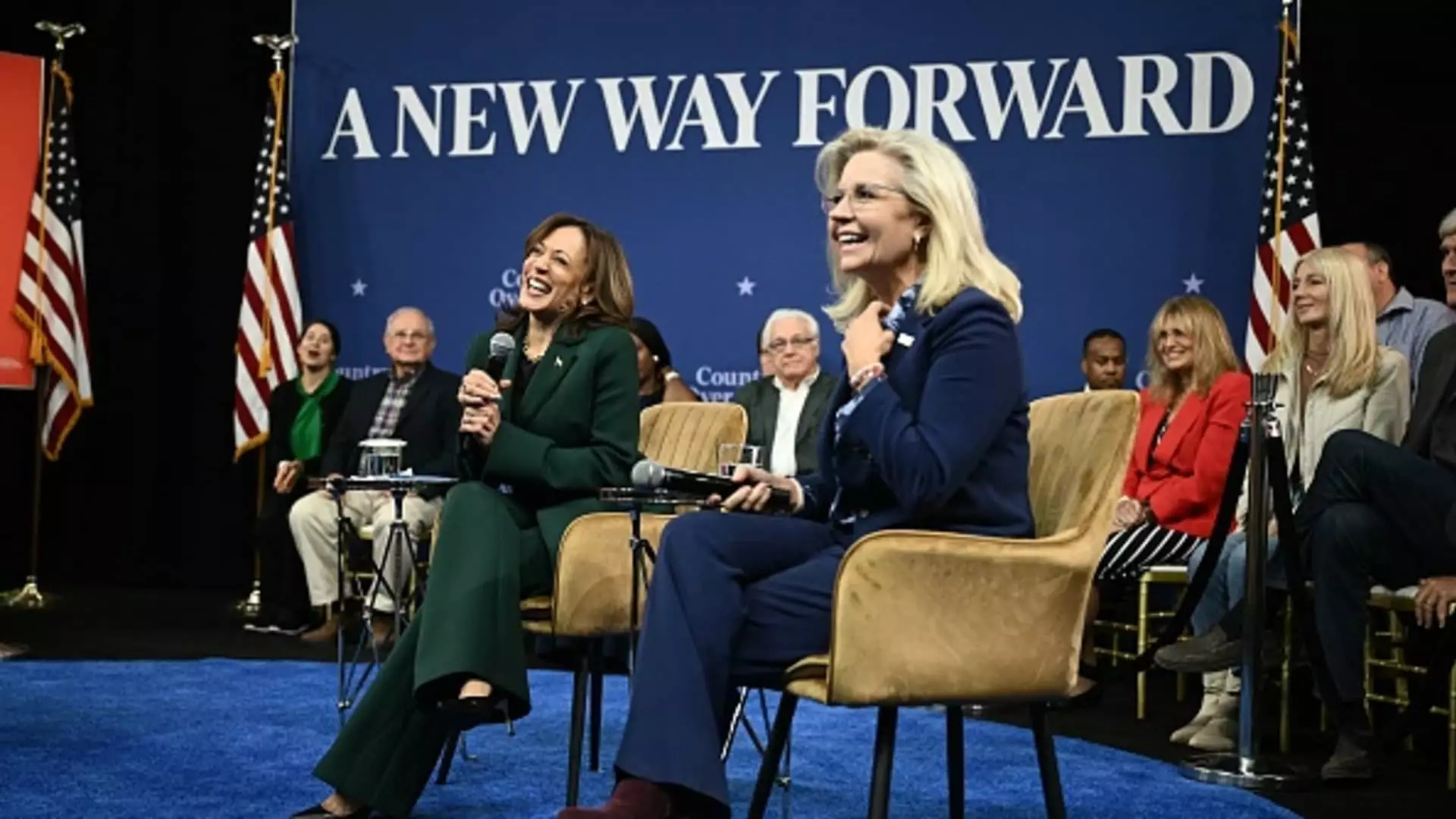On a pivotal day in the American political landscape, Vice President Kamala Harris and former Republican Representative Liz Cheney embarked on a dialogue journey through key battleground states—Pennsylvania, Michigan, and Wisconsin. This collaboration signals a significant moment of political crossover in an era marked by intense partisanship. Cheney, known for her bold stance against former President Donald Trump, emphasized the moral imperatives that should guide voters, stating, “It’s not about party, it’s about right and wrong.” This sentiment encapsulates a growing movement among some conservatives who are reassessing their allegiance in light of current political realities.
Cheney’s perspective is particularly noteworthy as she aligns herself with a Democratic candidate despite her staunch conservative values. By maintaining that she would encourage voters to “vote your conscience,” Cheney is effectively advocating for a nuanced approach to politics that transcends traditional party lines. This notion of conscience-driven voting resonates with many who feel disenchanted with the extremities of both the left and the right.
Cheney’s endorsement of Harris is rooted in her unwavering commitment to constitutional principles. During her remarks in Pennsylvania, she pointed out that being faithful to the Constitution is the cornerstone of true conservatism, and she positioned Harris as a proponent of these values. This assertion implies that Harris can be viewed as a candidate who prioritizes legal integrity over populist sentiment. For Cheney, the choice between Harris and Trump becomes not just a political decision but a moral one grounded in fidelity to the Constitution.
In the wake of the 2022 Supreme Court ruling that led to the dismantling of Roe v. Wade, Cheney’s views on reproductive rights further illustrate her complex stance as a conservative. She has vocally opposed extreme restrictions on women’s healthcare, suggesting that such measures are not sustainable and are detrimental to the nation’s future. This perspective opens a dialogue on how traditional conservative values can coexist with progressive views on social issues, providing a fertile ground for attracting disaffected voters who may be reconsidering their political affiliations.
Harris’s campaign has proactively sought to entice dissatisfied Republicans, launching initiatives like “Republicans for Harris.” This effort indicates a strategic pivot aimed at creating an inclusive political space. The vice president’s commitment to incorporating diverse viewpoints is particularly highlighted by her promise to include Republicans in her cabinet, should she be elected president. This approach advocates for a functional bi-partisan dialogue, emphasizing the necessity for “good, intense debates about issues that are grounded in fact.”
Harris’s ability to garner support from figures like Cheney could signify a new pathway toward bipartisanship, especially as the political landscape shifts in preparation for the upcoming elections. Cheney’s presence in the campaign not only lends credibility but establishes what political analysts term a “permission structure” for other Republicans considering crossing party lines.
As the discussions unfolded, Cheney took aim at Trump’s foreign policy, which she described as “not Republican” and potentially jeopardizing America’s global standing. Her remarks emphasize the importance of strong international alliances and a robust foreign policy framework—principles that she argues are essential for national security. Cheney’s criticism highlights a broader sentiment among certain Republicans who feel alienated by Trump’s isolationist tendencies.
By advocating for a return to established norms in foreign relations and signaling her alignment with Harris on critical issues, Cheney positions herself as a bridge between traditional Republican values and contemporary Democratic approaches. This alignment on foreign policy could attract undecided voters who prioritize a strong international presence and cooperative foreign relations.
As the election approaches, the collaboration between Harris and Cheney reflects a significant shift in the dynamics of American politics. Their united front suggests a growing faction that prioritizes civic duty over party allegiance, urging voters to reflect critically on their choices. With Cheney’s endorsement acting as a beacon for centrist Republicans, the Harris campaign stands to gain traction in pivotal states.
Ultimately, as both political figures navigate this complex landscape, they present a compelling narrative—one where integrity and a commitment to democracy overshadow party loyalty. This encourages a hopeful vision for a more collaborative political future, characterized by candid conversation and shared ideals. Engaging in these critical dialogues may allow voters to rethink their positions and the future direction of this nation’s politics.

Leave a Reply